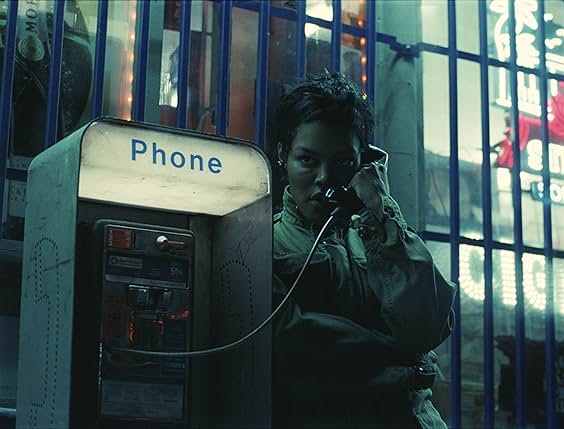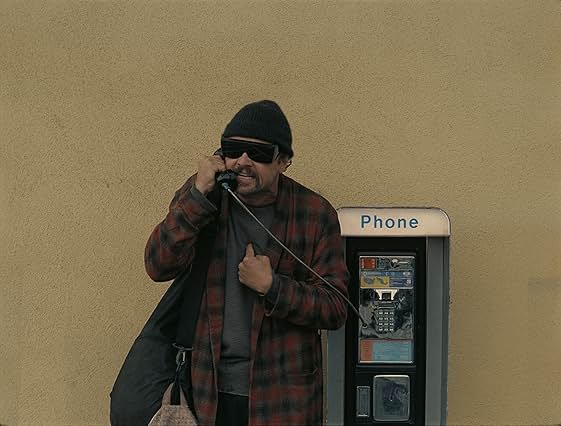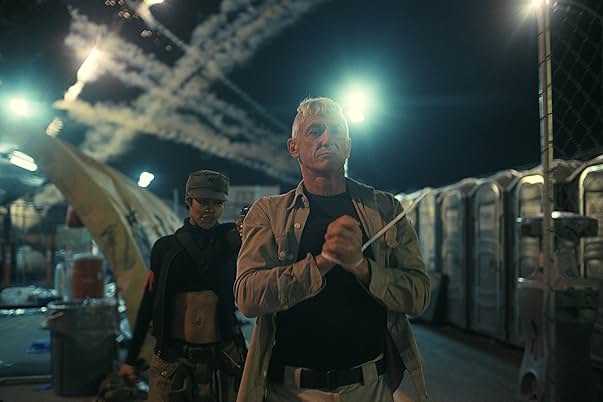
The revolution will not be televised — but this film captures it, with unforgettable results. 'One Battle After Another' is an eerily prescient exploration of revolution. It is not merely about the catharsis of rebellion, nor solely about the weak links that fracture the chain of resistance.
Darkly comic in tone, the film tackles revolutions, authoritarian regimes, immigration control, and family life. It teases out the nuances within these themes, choosing to analyse rather than glorify or condemn.
The Manifesto

One Battle After Another is a movie about freedom and love.
One Battle After Another is chiefly a movie about freedom and love. About what freedom means, why people risk safety, comfort, and their entire lives to achieve it. It's about love, and the love depicted in the film is unapologetic, unabashed, crass and authentic. It empowers characters and it also holds power over them.
It's also a movie about authoritarianism, the similarities and differences between how it's practiced in present day and how it has always behaved with politics and polity.
The insecurities of the authoritarian, the self-contradiction, the ignorance of that self-contradiction, be it willful or subconscious. There's always a new level of “purity” or “strength” for which superiority is to be evaluated. The only constant, is the blunt enforcement of the authoritarian's will on everyone and everything else.
And a revolutionary who does the same would be something an authoritarian would admire, irrespective of them being stark opposites.
Praxis

The film follows the cardinal rule of show, not tell and follows it to the letter, depicting a deeply surreal and hilarious perspective on some very serious topics.
The film is directed by Paul Thomas Anderson, renowned for There Will Be Blood, Magnolia, and Punch-Drunk Love, and it may well be one of the most remarkable cinematic experiences of the year so far. True to Anderson's signature style, it follows the cardinal rule of “show, don't tell,” offering a deeply surreal and darkly comic perspective on weighty themes.
Anderson's camera is constantly in motion alongside the audience, delivering a kinetic intensity and rhythm that never falters. Even quieter moments — when characters engage in seemingly mundane actions — are accompanied by an eclectic score that perfectly mirrors the emotions of those on screen.
Inspired by Thomas Pynchon's novel Vineland, a satire on the shifting political landscape of the United States from the 1960s to the 1980s, One Battle After Another takes only the central theme from Pynchon's work and transforms it into a story distinctly Anderson's own, using it to interrogate the volatile political climate of today.
The film addresses pressing contemporary issues including immigration enforcement, abortion rights, and corporatism — all hot-button topics in the current American political discourse.
Repertoire

Sean Penn stands out the most giving one of the most hilarious and chilling performance of his career as the antagonist in the film.
Every performance in One Battle After Another is noteworthy, with actors crafting fully realised worlds through their characters. Sean Penn stands out in particular, delivering one of the most hilarious and chilling performances of his career as the film's antagonist.
Penn portrays a white supremacist colonel who rounds up immigrants and cages them at the behest of the authoritarian government he idolises, all while nursing a primal attraction to women of colour.
Leonardo DiCaprio plays a washed-up revolutionary in hiding with his daughter. A committed progressive, he is nonetheless weighed down by nostalgia for the revolution's glory days and often complains about young people and new ideas.
Chase Infiniti as Willa, the daughter, and Teyana Taylor as her mother Perfidia — arguably the most unforgettable character in the film — drive much of the story and action. They more than hold their own, frequently stealing the spotlight from their seasoned male co-stars.
Taylor's Perfidia is an unhinged revolutionary, addicted to chaos and aggression, whose actions drive the story forward. Infiniti's Willa serves as the emotional core of the film, with her relationship with her father providing its most affecting moments.
Last, but certainly not least, is Benicio Del Toro's charming turn as Sergio, a martial arts instructor whose signature zen-like calm is as infectious as it is comforting.
Legacy

The film is most reminiscent of seventies movies such as Dog Day Afternoon, which are deeply political while also having its finger on the pulse of the sentiments that people held in that decade.
The film is most reminiscent of 1970s Hollywood classics such as Dog Day Afternoon, Serpico, and All the President's Men — films that were deeply political while capturing the sentiments of the era.
One Battle After Another achieves something similar for the modern age. Debates from ancient Greek philosophers Plato and Aristotle on family and conservatism feel particularly relevant to its themes.
The film examines how love for one's family can lead to conservative or cautious choices out of fear of loss, while simultaneously reminding us that those very loved ones are often the reason revolutions are fought — to create a better world for them.
Essential Business Intelligence, Continuous LIVE TV, Sharp Market Insights, Practical Personal Finance Advice and Latest Stories — On NDTV Profit.























